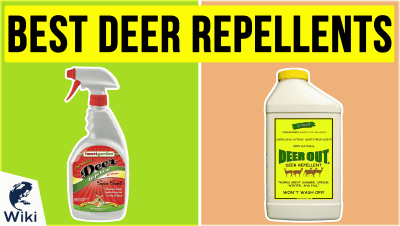7 Organizations Working Toward A Circular Economy
As societies around the world seek increased measures to protect the environment, new efforts are emerging to transition from a linear to a circular economy. Focused on reducing waste and repurposing materials, the circular economy represents an eco-friendly restructuring of capitalist systems of production and consumption. The groups included here are all critically involved in this mission, leading the charge toward a more sustainable future. This video was made with Ezvid Wikimaker.
7 Groups Focused on Reducing and Reusing Waste
| Organization | What It Does |
|---|---|
| Enerkem | Produces renewable methanol and ethanol from non-recyclable, non-compostable municipal solid waste at full commercial scale |
| CRCLR | A hub for ideas and experimentation aimed at transitioning to a circular economy |
| Closed Loop Partners | New York-based investment firm working to align capitalism with positive social and environmental impact, reducing waste and greenhouse gas emissions via materials innovation, advanced recycling technologies, supply chain optimization, and landfill diversion |
| Green Ship of the Future | Works toward emission-free maritime transport, promoting the use of existing energy-efficient technology and the exploration of new digital technologies |
| Circular Ecology | Offers a range of resource efficiency services, including carbon footprinting, water footprinting, and life cycle assessment |
| The Upcycle Movement | Strives to design solutions to combat textile pollution, inspiring the world to find new uses for objects and materials that would otherwise wind up as garbage |
| Circular Cambridge | A season of events that celebrates progressive ways to design, manufacture, access, repair, and reuse the things that we want and need in our lives |
How Enerkem is Building the Bioeconomy
Products To Help You Go Green
If you're interested in the environment, you probably know that changing consumer habits is an important part of the fight against climate change. If you want to help save the planet, getting some of these eco-friendly products is a good place to start:
- A set of reusable grocery bags
- Stainless steel straws to replace disposable plastics
- A portable greenhouse where you can grow your own food
- Silicone food bags for taking healthy snacks on-the-go
- A vegan cookbook to help you cut back on meat
- Solar toys that will entertain your kids without using fossil fuels
- Some beeswax wraps, a waste-free way to keep food fresh
- A reusable water bottle
Explaining the Circular Economy
In Depth
From toxic plastics polluting the ocean to landfill waste releasing greenhouse gases, many of Earth's ecological problems are a direct result of garbage thrown away by humans. As a result, many are embracing the concept of the circular economy, which emphasizes repurposing used goods over manufacturing and disposal. In no particular order, here are seven companies and organizations working to reduce waste and use discarded materials creatively.
Leading us off at #1 is Enerkem, the world's first company producing alcohol fuels from municipal waste at a commercial scale. Using a process developed from pioneering research by Dr. Esteban Chornet, at the Universite de Sherbrooke in Quebec, Enerkem converts non-recyclable garbage into ethanol and methanol to power vehicles.
Enerkem aims to shift the current waste-producing economy into one in which discarded materials can be transformed into energy and new goods. The company has worked with the Ocean Legacy Foundation toward solutions for the problem of seaborne plastic pollution, and continues to engage in research and development, exploring novel ways to make use of garbage.
The company has worked with the Ocean Legacy Foundation toward solutions for the problem of seaborne plastic pollution, and continues to engage in research and development, exploring novel ways to make use of garbage.
Following up at #2 is CRCLR, a hub for ideas and experimentation aimed at transitioning to a circular economy. Operating in Berlin, the group designs community spaces as pilot projects, using waste materials for construction and incorporating features like urban gardens and co-working areas. These centers serve as sites for collaborative meetings and workshops on waste reduction strategies.
Projects pioneered by CRCLR have included a pop-up store featuring re-used goods, a communal work space constructed from reclaimed materials, and insulation made with discarded clothes. The group also organizes educational workshops, covering topics from at-home mushroom cultivation to the future of education. And its blog shares interviews with innovative thinkers, and news about CRCLR's work.
At #3 we have Closed Loop Partners, a New York investment firm that finances ventures moving the economy toward reuse and sustainability. From early-stage investments in companies developing waste-reducing innovations, to funding for environmentally friendly infrastructure projects, this company aims to support efforts that will remove materials from the waste stream, and make more efficient use of resources.
From early-stage investments in companies developing waste-reducing innovations, to funding for environmentally friendly infrastructure projects, this company aims to support efforts that will remove materials from the waste stream, and make more efficient use of resources.
Closed Loop uses its investments as case studies to inform further efforts in socially responsible use of capital. The company also sponsors research and analysis through the Center for the Circular Economy, like its assessment of opportunities in plastics recycling, and organizes corporate collaborations like the NextGen Consortium on sustainable solutions for disposable cups. Closed Loop's blog discusses industry news, design strategy, and the future of the economy.
Entry #4 is Green Ship of the Future, an independent and member-financed nonprofit working towards carbon-neutral maritime transport. The industry partners forming GSF collaborate on projects such as the Global Shippings Action Plan, a strategy outline for a transition to zero emissions, and the regionalECOfeeder, a low-pollution design for coastal feeder vessels.
Among the research topics pursued by GSF are 3-D printing to reduce scrapping, the impact of digitization on maritime carbon emissions, and potential waste reduction from retrofitting existing fleets. The organization also helped develop the Circular Shipping Initiative, a project exploring the role of marine transport in shifting to an economy based on re-use. GSF continues to explore emissions reduction opportunities for the shipping industry.
GSF continues to explore emissions reduction opportunities for the shipping industry.
Coming in at #5 is Circular Ecology. Drawing on the sustainability expertise of Dr. Craig Jones, this company offers a range of services for organizations looking to reduce their environmental footprint. Its Offset My Life initiative provides verified carbon offset credits, all of which include tree planting in addition to other emissions reduction projects.
Other services provided by Circular Ecology include client assessments for factors like embodied carbon and water footprints, and training courses equipping organizations to conduct these analyses themselves. The company offers informational resources explaining sustainability concepts, including video webinars, and shares news about topics like low-carbon design and renewable energy.
#6 on our list is The Upcycle Movement, an organization created by designer Lynn Haughton, with the goal of inspiring the world to find new uses for objects and materials that would otherwise wind up as garbage. This project gave rise to the Neo Collection, a range of bags and accessories created from old wetsuits, with a portion of revenue going to the Seal Rescue Ireland charity.
This project gave rise to the Neo Collection, a range of bags and accessories created from old wetsuits, with a portion of revenue going to the Seal Rescue Ireland charity.
Along with repurposing used goods, The Upcycle Movement facilitates workshops on finding business opportunities that make new use of waste materials. The group also highlights other innovative efforts in this field, like the reworked textiles of Ressies Redesign. Its blog shares resources regarding the practice of upcycling and putting the circular economy into practice.
We'll close with #7, Circular Cambridge, an event series from Cambridge Carbon Footprint that focuses on transforming the way the economy handles design, manufacture, and disposal. This initiative creates gatherings like the Sustainable Fashion Festival, where attendees can learn mending skills and discover innovations like Petit Pli's expandable baby garments, or pop-up exchanges where locals can swap goods and skills.
Circular Cambridge's signature initiatives are its Repair Cafes, community events where volunteers with expertise in fixing various items help neighbors extend the lifespan of possessions, such as appliances, toys, and clothing. Other events include educational activity sessions and discussions on fighting climate change. The organization also shares information about sustainable living and making the circular economy a reality. Supporters can donate or offer volunteer assistance.

















